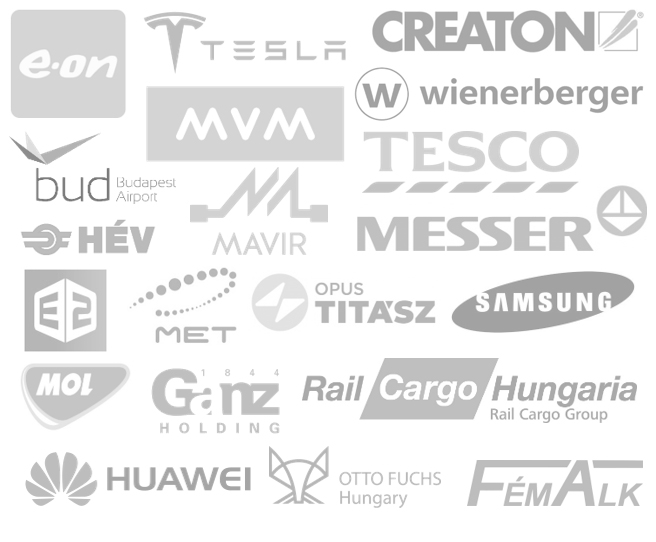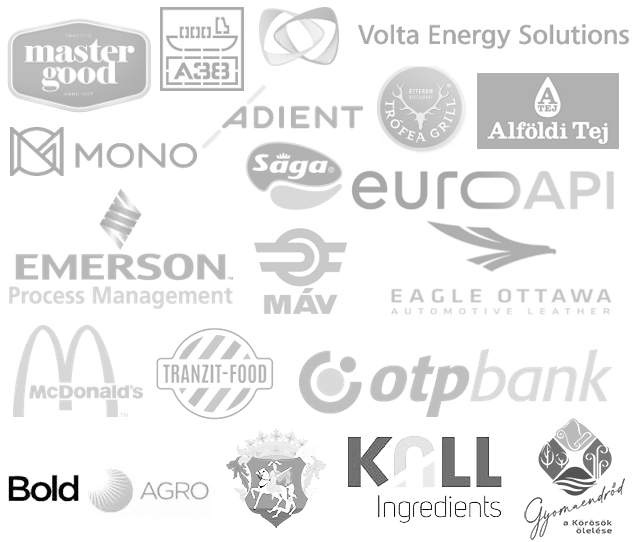Decarbonization
Why is decarbonization important?
Climate change and extreme weather events are becoming more frequent and intense, posing one of the greatest challenges of our time. Preventing them, mitigating their effects, and adapting to their consequences requires effective interventions that can be implemented now.
One of the main causes of climate change is greenhouse gases from human activities and the resulting global temperature rise. The goal of decarbonization is to reduce exposure and transition as quickly as possible from fossil fuels to carbon-free and renewable energy sources.


Decarbonization is not just an environmental issue, it also offers key business benefits. With stricter regulations and growing social expectations to mitigate global warming, it is essential that companies reduce their carbon emissions. The consequences of global warming also pose increasingly serious financial risks, and companies that fail to adapt to the changing environment may find themselves at a competitive disadvantage.
Why should your company look into decarbonization options?
Cost savings:
Sustainable energy sources and efficient operations can reduce energy costs and operating expenses.
Business advantage:
Decarbonization can already give you an advantage in the greener economy over companies that have not yet adopted sustainable solutions.
Regulatory compliance:
Decarbonization helps you comply with increasingly stringent international and local climate regulations.
Improved corporate image:
A commitment to sustainability and social responsibility strengthens a company's credibility in the eyes of customers and investors.
Regulatory environment
Decarbonization measures are essential not only from an environmental perspective, but also from a legal one. The EU and Hungary are committed to achieving climate neutrality. The EU's goal is to become climate neutral by 2050 in three steps – to build an economy with net-zero carbon emissions. This goal is at the heart of the Green Deal and has become a legally binding target thanks to the European Climate Law. The EU's targets are as follows:
By 2020
-20%
(actual reduction exceeded 30%)
By 2030
-55%
By 2050
NET ZERO
Hungary's 2020 Act XLIVsets out the following specific commitments:
- 40% reduction in emissions by 2030 compared to 1990.
- After 2030, any increase in energy consumption must come exclusively from carbon-neutral sources.
- By 2030, at least 21% of final energy consumption will come from renewable sources.
- By 2050, complete climate neutrality, i.e. a balance between emissions and absorption.
Further information: https://ec.europa.eu/clima/sites/lts/lts_hu_update_hu.pdf
National Clean Development Strategy 2020-2050 - ITM
Why is decarbonization important?
Companies required to submit CSRD reports must prepare their reports in accordance with the ESRS (European Sustainability Reporting Standards). These standards regulate the environmental standards that must be met. ESRS E1 is the most important standard, which relates to climate change and emissions. It applies if climate is an important consideration for the company based on the double materiality criterion, as provided for in Section 95/E of Act C of 2000 on accounting.
Under the latest regulations, from January 1, 2025, all large companies and, from January 1, 2026, all listed SMEs will be required to disclose their decarbonization strategy in their CSRD report. This strategy must include, among other things:
- the company's specific targets for reducing emissions (e.g. by 2030, 2040, 2050),
- the steps the company plans to take to achieve these targets,
- and the expected results and progress.
This regulation therefore represents a significant change for companies, which will now be required to disclose this information in their sustainability reports.
The CSRD report must also include all CO2 emissions related to the company's activities. The various emissions are divided into three main categories:
- Scope 1: CO2 emitted directly at the company's own sites (e.g. during heating or production).
- Scope 2: Indirect CO2 emissions that are not generated at the company's own sites but through the energy it purchases (e.g. electricity).
- Scope 3: Completely indirect CO2 emissions, such as those related to transportation.
These emissions must be reported annually by companies in CO₂e (carbon dioxide equivalent) units.
The impact of the EU ETS and changes affecting companies
Companies with significant carbon emissions that are covered by the EU Emissions Trading System (EU ETS) will face stricter regulations from 2024. The new rules involve a reduction in emission allowances and a gradual phasing out of free allowances, while a significant increase in allowance prices is also expected in the coming years.
In light of this, the following changes should be anticipated:
- Accelerated reduction of emission allowances (Linear Reduction Factor – LRF):
- 2021–2023: 2.2% reduction per year
- 2024–2027: 4.3% reduction per year
- 2028–2030: 4.4% reduction per year
- Gradual phase-out of free allowances:
Free allowances (e.g. for cement, steel and chemical companies) will be phased out between 2026 and 2034. The phase-out of allowances will take place in parallel with the introduction of the EU Carbon Border Adjustment Mechanism (CBAM), which will also apply emission costs to imported products.
In addition, current quota prices (early 2025) range between €60 and €80 per tonne of CO₂, but these costs could rise to over €100 per tonne in the coming years.
These changes mean that companies need to prepare for rising emission costs and the gradual phasing out of free allowances. Sustainability strategies and decarbonization measures will therefore be key in the future.
1
Analysis of emissions measurement
As a first step, we conduct a detailed analysis of the company's carbon dioxide emissions. Based on this, we determine a baseline that will serve as the basis for setting reduction targets.
2
Proposal of targets and strategies
In the next step, we make recommendations for setting realistic, measurable decarbonization targets for the company and develop strategic guidelines for achieving these targets. Setting targets enables the company to monitor and measure results.
3
Opportunities for energy efficiency and cost reduction
In the next step, we make recommendations for setting realistic, measurable decarbonization targets for the company and develop strategic guidelines for achieving these targets. Setting targets enables the company to monitor and measure results.
4
Integration of renewable energy sources
The study includes opportunities for using renewable energy sources (e.g., solar and wind power plants) that help reduce the environmental impact of fossil fuels.
5
Carbon offsetting options
The study presents options for carbon offsetting measures (e.g., reforestation projects) for those who are unable to reduce their emissions completely but would like to make up for the shortfall.
6
Continuous monitoring and reporting
Continuous monitoring of emissions is necessary to achieve decarbonization goals. The study makes recommendations on how to set up a monitoring system and how to report on the results achieved.
What does a decarbonization study include?
Our decarbonization studies offer detailed practical guidance on reducing carbon emissions, with industry-specific examples and solutions. They help your company develop effective decarbonization plans, taking into account the latest regulatory requirements, cost-effective strategies, innovative technological solutions, and sustainable business models. Through case studies and data-driven analysis, they ensure that every company finds the best decarbonization solutions for its needs, while ensuring long-term sustainability and competitive advantage.
Which industries are particularly relevant?
Decarbonization studies are useful for any industry with significant energy consumption and carbon dioxide emissions. Some examples:
-
Energy and utilities: Integration of renewable energy sources, increasing energy efficiency.
-
Manufacturing and heavy industry: Low-carbon technologies, use of green energy.
-
Transport and logistics: Electromobility, sustainable fuels, efficient supply chains.
-
Construction and real estate development: Green buildings, energy-efficient solutions.
-
Agriculture and food industry: Sustainable production methods, reduction of carbon footprint.
-
Financial sector: Sustainable investments, ESG compliance.
The studies include industry-specific strategies and case studies to help every company find the best decarbonization solutions for them
The transition to a climate-neutral society is an opportunity to build a better future for everyone, and businesses of all sizes have a key role to play in this, according to the UN.
Why should you care?
Learn about industry trends, best practices, and cost reduction opportunities that can help your company reduce its carbon footprint.
- Achieve sustainability goals faster.
- Ensure regulatory compliance.
- Stay ahead of your competitors in a greener economic environment.
Why choose us?
When you choose decarbonization solutions, you are not only helping the environment, but also ensuring the long-term success of your company. With the right strategies, you can not only reduce your carbon emissions, but also save costs, gain a competitive advantage, and comply with increasingly stringent regulations.
Why work with us?
-
Customized solutions: We develop strategies tailored to your company, taking into account market and industry specifics.
-
Environmental and business benefits: Your company not only contributes to protecting the environment, but also gains financial benefits through sustainability, strengthening its market position.
-
Complete support: We guide you through the entire decarbonization process, from analysis to goal setting and implementation, ensuring continuous improvement and compliance with future regulations.
With all this in mind, decarbonization is not just an obligation, but an opportunity to secure a valuable future for your company. Trust our experts and take a step towards sustainability!
When we work together, you not only get a valuable, expert-based solution, but you also actively contribute to promoting global sustainability.
After all, decarbonization is not just an environmental issue – it is an opportunity for your company to take a leading role in a responsible, green economy. Our responses to environmental challenges help strengthen your company's social responsibility while promoting its long-term success. Active participation in the journey towards a more sustainable future gives you a competitive advantage in an increasingly green economy.
Trust our experts and take the first step towards a more sustainable future!
Winergy Kft. has been a reliable partner to Hungarian companies in environmental matters for 15 years. The following companies have already placed their trust in us:

